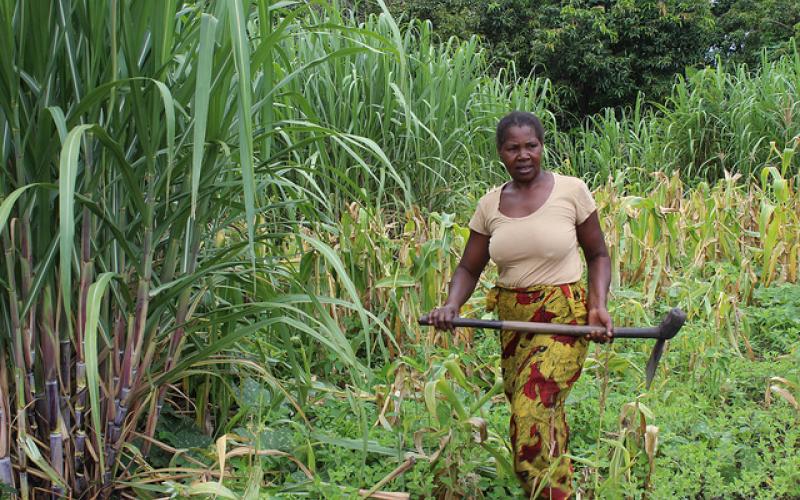
Ranjitha Puskur guest blogs on International Women’s Day about the need for gender equality for rural women in agriculture. We are living in an increasingly unequal world. A recent UNDP report entitled ‘Humanity Divided’notes that while Gross Domestic Product (GDP) per capita in low- and middle-income countries has doubled since 1990, more than 1.2 billion people continue to live in extreme poverty.
Recommended publications
- Empowerment of women through fisheries and aquaculture
- Poverty alleviation and women’s empowerment through aquaculture: an experience from Nepal
Ranjitha Puskur guest blogs on International Women’s Day about the need for gender equality for rural women in agriculture.
We are living in an increasingly unequal world. A recent UNDP report entitled ‘Humanity Divided’notes that while Gross Domestic Product (GDP) per capita in low- and middle-income countries has doubled since 1990, more than 1.2 billion people continue to live in extreme poverty.
The greatest increases in income inequalities have occurred in developing countries that were especially successful in pursuing vigorous growth. Yet, as the UNDP report points out high inequality is not an inevitable consequence of rapid growth. There are examples where increased inequality has been prevented with appropriate policies and with greater participation and empowerment of those in danger of being left behind.
An important part of the reason for growing inequality is unequal opportunity for women. Despite, longstanding recognition of the fact that promoting gender equality is both the right and smart thing to do, success has been inconsistent at best. The Millennium Development Goals report states that, while we have made significant progress on several fronts, accelerated progress and bolder action are needed.
The fundamental problem is that women continue to be denied equal opportunity with men to participate in decisions that affect their lives. This problem stretches from the highest levels of government decision-making to the poorest household.
Inequalities are especially acute for rural women engaged in agriculture and fisheries, where livelihood opportunities are determined by access to and control over productive resources and assets. Deeply embedded cultural and social norms constrain women’s access to these resources. For example, in the Barotse Flood Plain in the Western Province of Zambia where we work, men are fishers, cut timber products, and herd cattle – all enterprises with a higher income-earning potential. Women, in contrast, tend to fish seasonally using baskets (sometimes spears) rather than nets. They also fish in shallower waters, and less frequently given their gendered role as caretakers of their homes. This means women typically catch smaller fish in smaller quantities and earn less income.
Up to now, efforts to address gender inequalities such as these has mainly been the responsibility of a limited number of gender ‘researchers’ (usually female) and their focus has been on ensuring or enhancing the adoption of agricultural technology by women. Instead, what is required, is more widespread understanding of the relevance of, and a long-term commitment to, a deeper social change agenda. In the Barotse, for example, privileged access by men to the more profitable resource base (fish, timber, and grassland) is due in part to how males are socialized during childhood. The normative attitude and belief is that boys and men are more physically capable of carrying out these tasks.
Until we achieve a transformation in values, beliefs, mindsets, attitudes, behaviours and practices development efforts will be critically constrained. In particular, it needs to be understood that giving more opportunities to women does not mean taking away opportunities from men; empowerment benefits everyone.
Unfortunately, we are yet to see a major focus on transformative change by most agricultural research and development organizations. And donors, who have the power to influence them have only recently begun to recognize this as an important investment opportunity. Much more needs to be done to make gender transformative practices a part of normal development practice and it will require leadership by both donor and implementing agencies.
Feminism is the belief that men and women should have equal rights and opportunities. If we aspire to a poverty-free world for everyone, we must all become feminists.
Globally, more than 600 million women are small-scale farmers and landless workers. Twelve women from around the world share their daily challenges, experiences and hopes for the future to mark International Women’s Day on March 8, 2014.
